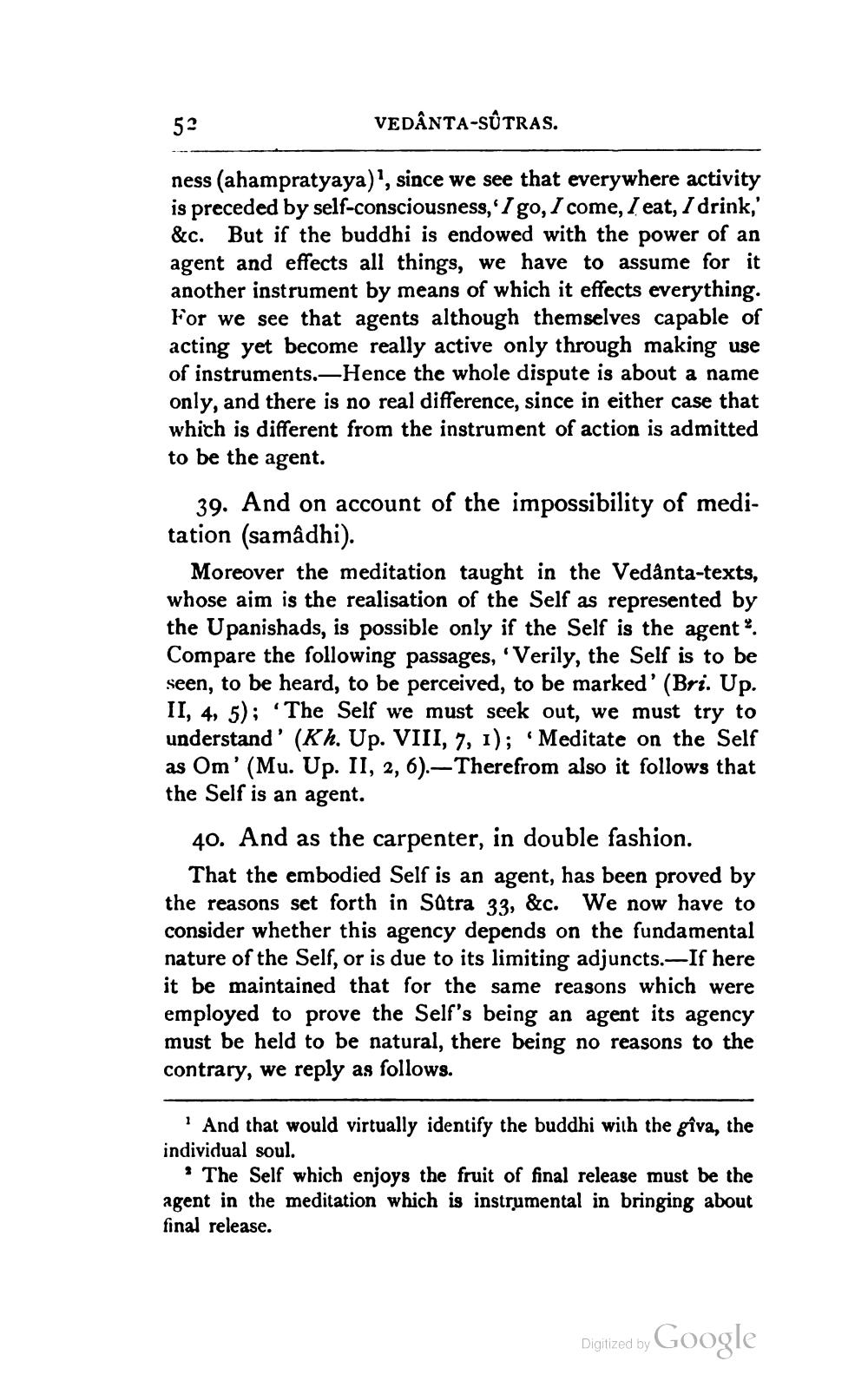________________
52
VEDANTA-SUTRAS.
ness (ahampratyaya)', since we see that everywhere activity is preceded by self-consciousness,' I go, I come, I eat, I drink,' &c. But if the buddhi is endowed with the power of an agent and effects all things, we have to assume for it another instrument by means of which it effects everything. For we see that agents although themselves capable of acting yet become really active only through making use of instruments. Hence the whole dispute is about a name only, and there is no real difference, since in either case that which is different from the instrument of action is admitted to be the agent.
39. And on account of the impossibility of meditation (samâdhi).
Moreover the meditation taught in the Vedanta-texts, whose aim is the realisation of the Self as represented by the Upanishads, is possible only if the Self is the agent *. Compare the following passages, 'Verily, the Self is to be seen, to be heard, to be perceived, to be marked' (Bri. Up. II, 4, 5); 'The Self we must seek out, we must try to understand' (Kh. Up. VIII, 7, 1); 'Meditate on the Self as Om' (Mu. Up. II, 2, 6).-Therefrom also it follows that the Self is an agent.
40. And as the carpenter, in double fashion.
That the embodied Self is an agent, has been proved by the reasons set forth in Sûtra 33, &c. We now have to consider whether this agency depends on the fundamental nature of the Self, or is due to its limiting adjuncts.—If here it be maintained that for the same reasons which were employed to prove the Self's being an agent its agency must be held to be natural, there being no reasons to the contrary, we reply as follows.
And that would virtually identify the buddhi with the gîva, the individual soul.
The Self which enjoys the fruit of final release must be the agent in the meditation which is instrumental in bringing about final release.
Digitized by Google




